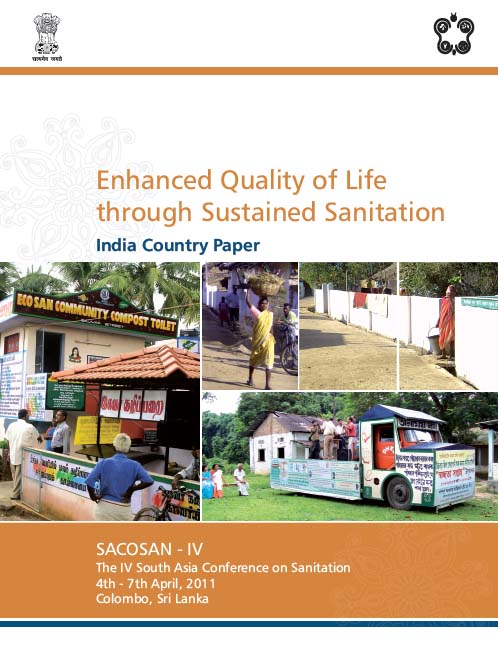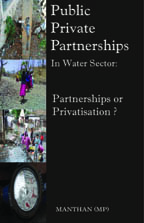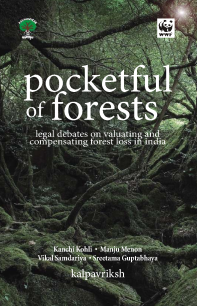/topics/government-programmes
Government Programmes
Public toilets In disrepair, villagers suffer - Video Volunteers : Article in India Unheard
Posted on 28 Jun, 2011 05:38 PM
In Kokkarapati village (TN), dilapidated public toilets cause difficulty, disease and humiliation.
Centrally sponsored schemes ARWSP and TSC have not done enough to ensure right to water and basic sanitation : Article from Combat Law
Posted on 28 Jun, 2011 04:59 PMThe Universal Declaration of Human Rights (1948) recognises the inherent dignity and the equal and inalienable rights of all human beings. There are certain basic needs that are essential for a dignified life. Water and sanitation are two of these essential human needs and a clean environment is also increasingly recognised as a fundamental human right.
Challenges of food security and its management: A position paper by the National Rainfed Area Authority
Posted on 28 Jun, 2011 08:07 AM The paper also discusses their future potential and possible impact on national food security of diversification into non-PDS, fruits, vegetables and other commercial crops. This kind of analysis is likely to help planners and policy makers in choosing appropriate policy framework in evolving the strategies for enacting and operationalization of Food Security Act.
The paper also discusses their future potential and possible impact on national food security of diversification into non-PDS, fruits, vegetables and other commercial crops. This kind of analysis is likely to help planners and policy makers in choosing appropriate policy framework in evolving the strategies for enacting and operationalization of Food Security Act.
With increase in population, income and urbanization, the demand for food grains has also increased and diversified. Although there has been more than four-fold increase in food grain production from 1950-51 (50.82 mt) to 2008-09 (233.88 mt), a large section of our population continues to suffer from malnutrition and inadequacy of food grains. On the other hand degradation of land, water and other natural resources have started impacting production through increased biotic and abiotic stresses.
Enhanced quality of life through sustained sanitation - India country paper for South Asia Conference on Sanitation
Posted on 24 Jun, 2011 10:09 PM This India Country Paper on Enhanced Quality of Life through Sustained Sanitation was prepared for South Asia Conference on Sanitation (SACOSAN) IV held at Colombo, Sri Lanka in April, 2011.
This India Country Paper on Enhanced Quality of Life through Sustained Sanitation was prepared for South Asia Conference on Sanitation (SACOSAN) IV held at Colombo, Sri Lanka in April, 2011.
In rural sanitation, India’s flagship rural sanitation programme, the Total Sanitation Campaign (TSC), continues to be implemented with renewed vigour, and improvements in multiple facets of the programme. The TSC programme was given a further boost with the introduction of the Nirmal Gram Puraskar (NGP), an innovative incentive scheme for Gram Panchayats, Blocks and Districts. The rural sanitation sector has continued to receive increasing budgetary support.
Scaling up rural sanitation: Findings from the impact evaluation baseline survey in Madhya Pradesh
Posted on 24 Jun, 2011 03:43 PMThis report is a part of a series of papers that analysed the baseline data from all countries where the program was implemented.
Alternate management approaches for village water supply systems - Case studies from Maharashtra - A field note by WSP
Posted on 23 Jun, 2011 05:25 PMIt documents the approaches in a context where the state government agencies responsible for construction and management of rural water supply systems have been found to be facing limitations in O&M arrangements.
The traditional approach to provision of rural water supply in India has been supply driven, with emphasis on norms and targets and on construction and creation of assets, but with very little concern for sustainable arrangements for better management and maintenance of the facilities built. The viewpoint that users are ‘beneficiaries’ rather than empowered stakeholders among the service providers has led to alienation of the users.
Survey of recent sanitation achievement in Himachal Pradesh - A study by Institute of Development Studies
Posted on 23 Jun, 2011 10:35 AMThis report of a study commissioned by the Institute of Development Studies on the Community Led Total Sanitation (CLTS) site presents the findings of the survey that was conducted in Himachal Pradesh to assess the progress made by the state in rural sanitation, in the context of the sanitation revolution, which is said to have occurred in the state of Himachal Pradesh in the last few years.
Himachal Pradesh has a population of about 6.9 million and is over 90% rural. It has a relatively good record on human development indicators and access to public services. However, it showed a dismal awareness on the sanitation front till a few years ago.For example, in 2004, household toilet coverage in rural areas of Himachal Pradesh was estimated at about 28%. In early 2005, the Government of Himachal Pradesh adopted a new strategy to secure better rural sanitation results, which included:
Forget Prometheus and remember Bhagiratha: Wrong and right thinking about rivers ' - Shri Ramaswamy Iyer s lecture at School of Environmental Sciences, Jawaharlal Nehru University (June 2011)
Posted on 22 Jun, 2011 09:55 AM“Current economic philosophy exalts consumption and growth. If we are hypnotised by visions of 8% or 10% growth, we are bound to ‘demand’ more and more and still more water; and either government engineers or private companies and their engineers will come up with supply-side answers in the form of large projects which will cause even greater distress to the rivers”.
Tehri Dam across Ganga
Source: haridwar.nic.in/ gangaji.htm
I am very grateful to Prof. Sudha Bhattacharya for having invited me to this Seminar. I was not sure whether what I have to say would fit in well with the theme of this Seminar, but she persuaded me to say yes, and so here I am.
Public Private Partnerships in the water sector: Partnerships or privatisation - A report and video by Manthan Adhyayan Kendra
Posted on 21 Jun, 2011 05:29 PM
This report and video by Manthan Adhyayan Kendra, looks at various aspects of PPPs, beginning from why PPPs have come to be regarded as the major approach for infrastructure development in the country, the circumstances that lead to the change in approach from direct privatisation to public-private partnerships, the current status of the PPP projects that are being executed in India, especially in the water sector, to the current estimates and projections of investment requirements for infrastructure development in India by governments and International Financial Institutions (IFIs).






